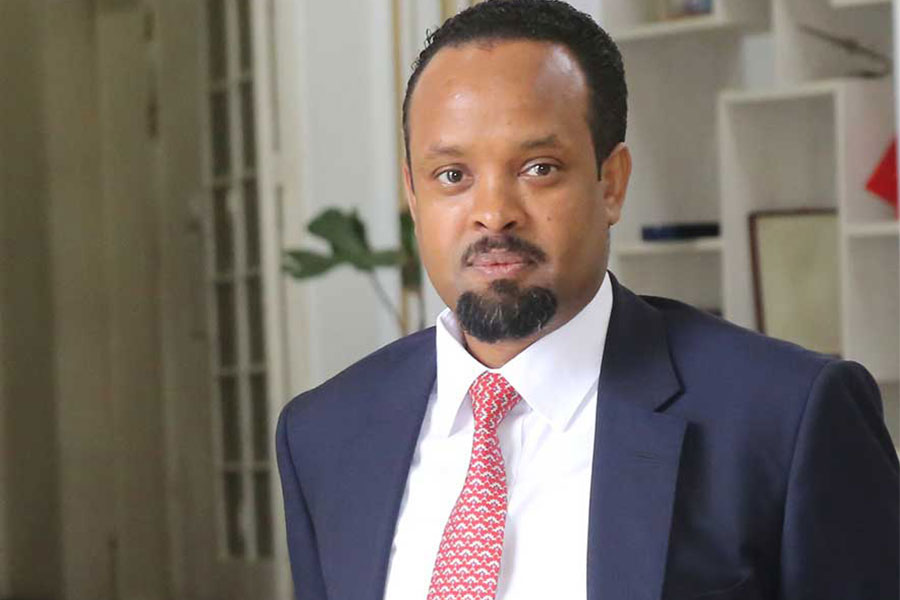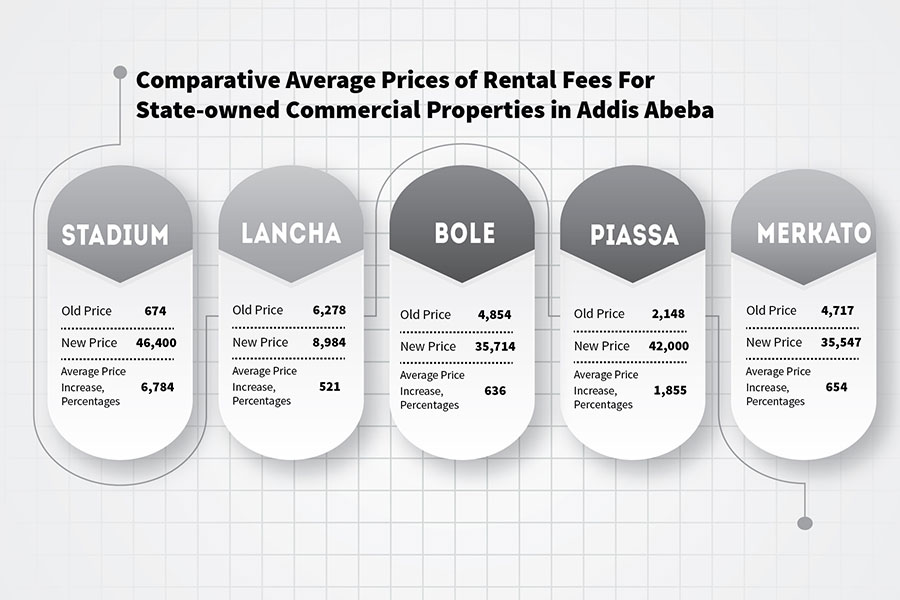
Commentaries | Jun 01,2024
Jul 1 , 2023
By MUNIR SHEMSU ( FORTUNE STAFF WRITER )
The plausibility of addressing development goals and meeting the infrastructure objectives of regional states with a slashed capital expenditure was highlighted during the second public hearing on next year's austere budget proposal last week.
The proposed budget which reduces capital expenditures by 15 billion Br while allocating the same financial support for regional states as the prior year despite a 33pc inflation rate aroused fears from regional states with protracted infrastructure projects.
Three residents from Seqota and Wag Hemra zone in Amhara Regional State traversed 700Km to the capital and addressed "existential concerns" over proposed capital budget allocations to the Standing Committee of Plan, Budget & Finance affairs chaired by Desalegn Wedago and State Minister for Finance Eyob Tekalegn (PhD)
Yilma Mola, a member of the Dana Wereda council, said it has been 24 years since residents in the area asked for the construction of an asphalt road to have better access to the market.
According to Yilma, the area has been significantly impacted by the two-year war and is dealing with an extremely high cost of living and the need for critical infrastructure.
"What will be the fate of our people?" he enquired Parliament.
The Seqota area has been subject to problems of undernourishment which have garnered international attention.
The Seqota Declaration (SD) is a 15-year roadmap envisaged by the Ethiopian government in 2015 to end malnutrition and stunting in children under the age of two by 2030.
It was made following a baseline study conducted with the collaboration of Johns Hopkins University, the Ethiopian Public Health Institute and Big Win Philanthropy, which found that 41pc of children between 6-23 months were stunted after observing 2,616 households from Tigray and Amhara regional states.
Representatives indicated that while residents had held back from voicing their angst over the past two years in consideration of the war and supply shortages possibly induced by Covid-19, "they demand to be heard now".
The Seqota-Amdework-Addis Zemen road, which is supposed to extend a little over 220Km was allotted 8.6 million Br for next year, which will barely cover anything, according to the residents.
Mola Zenebe who serves as a local elder and council member in the Seqota Administration with close to 100,000 households, implied that a pending public rally by the citizenry had been quelled over the past week. He indicated that residents have been wary of undernourishment while inflation has crippled them.
"The brunt of inflation is breaking the most rugged amongst our communities," Mola told Fortune.
Members of Parliament (MPs) from the incumbent ruling party questioned the probability of attaining development goals.
Alemu Damtew referred to the Milamile Road, a 69Km interregional road between Amhara and Oromia regional states, which had its budget slashed from 94 million Br to seven million Birr.
"This barely covers the construction work for a single kilometre," he said.
Another MP Astede Mamo from Gonder town, Amhara Regional State also raised concerns over the Tsegede -Dabit road construction, an area with much contention over ownership between the regional states of Amhara and Tigray.
Enquiries on the limitations of the proposed budget in addressing the infrastructure demands of the country were not limited to roads.
Girma Mekonen (PhD), representing the Educational Assessment & Examinations Service (EAES) expressed his discontent with the 2.1 billion Br allotted to the Service for next year.
He expressed that 870,000 students have registered to take University entrance exams this year and that the 1.8 billion Br allotted specifically for the examination process would not be able to cover expenses.
"A budget deficit will likely happen," he said.
Girma questioned whether budgeting 22 Br per meal for students and a significant amount of transport cost attributed to air fairs due to political instability in several regions would be covered by the budget.
Officials from the Ministry of Finance indicated that "severe budget constraints" plague the national treasury and a shift towards conservative spending habits is the new reality of the economy.
Teferi Demeke, budget director at the Ministry, emphasised that macroeconomic stability is the first order of business while the budget for road construction would be restricted to ensuring the projects are complete.
Scaling back on government expenditure including the hiring of new employees is essential for economic stability, according to Teferi.
"The bloated organizational structure of the public service needs restructuring," he said.
The 810 billion Br budget slated for next year will be sourced 60pc from tax revenue, 30pc from domestic borrowing and the rest from foreign backers. State Minister for Finance Eyob Tekalign (PhD) provided concluding remarks lauding "a conservative budget oriented towards macroeconomic stability".
He indicated that extended deliberations on budget ceilings have been had with all ministries and federal agencies. Capital markets slated for next year will not be used as a source of financing by the government, according to the State Minister.
"We have planned capital markets for the private sector," he told Fortune.
Experts caution on the effect of decreasing budgetary allocation in the absence of a policy framework that enables a vibrant private sector.
"It is a highly indebted economy, that produces much below its potential," said Solomon Assefa a researcher on rural-urban commercial linkages and an economics lecturer at Welkite University.
He argues the importance of continuously developing rural transportation infrastructure cannot be overstated.
"Cutting back on projects is symptomatic of budgetary stress," he said.
Solomon noted the brunt of underdeveloped infrastructure falls on farmers and suggested that independence from foreign creditors can only come about by massively enhancing the productivity of the agricultural sector through both financial and physical infrastructure. He indicated that political stability combined with strong industry linkages will be long-term solutions.
PUBLISHED ON
Jul 01,2023 [ VOL
24 , NO
1209]

Commentaries | Jun 01,2024

Fortune News | Sep 22,2024

Radar | Aug 03,2025

Fortune News | Aug 13,2022

Commentaries | Jul 07,2024

Editorial | Jun 17,2023

Radar | Jun 11,2024

Fortune News | Dec 27,2018

Radar | May 31,2020

Fortune News | May 11,2019

Dec 22 , 2024 . By TIZITA SHEWAFERAW
Charged with transforming colossal state-owned enterprises into modern and competitiv...

Aug 18 , 2024 . By AKSAH ITALO
Although predictable Yonas Zerihun's job in the ride-hailing service is not immune to...

Jul 28 , 2024 . By TIZITA SHEWAFERAW
Unhabitual, perhaps too many, Samuel Gebreyohannes, 38, used to occasionally enjoy a couple of beers at breakfast. However, he recently swit...

Jul 13 , 2024 . By AKSAH ITALO
Investors who rely on tractors, trucks, and field vehicles for commuting, transporting commodities, and f...

Nov 1 , 2025
The National Bank of Ethiopia (NBE) issued a statement two weeks ago that appeared to...

Oct 25 , 2025
The regulatory machinery is on overdrive. In only two years, no fewer than 35 new pro...

Oct 18 , 2025
The political establishment, notably the ruling party and its top brass, has become p...

Oct 11 , 2025
Ladislas Farago, a roving Associated Press (AP) correspondent, arrived in Ethiopia in...